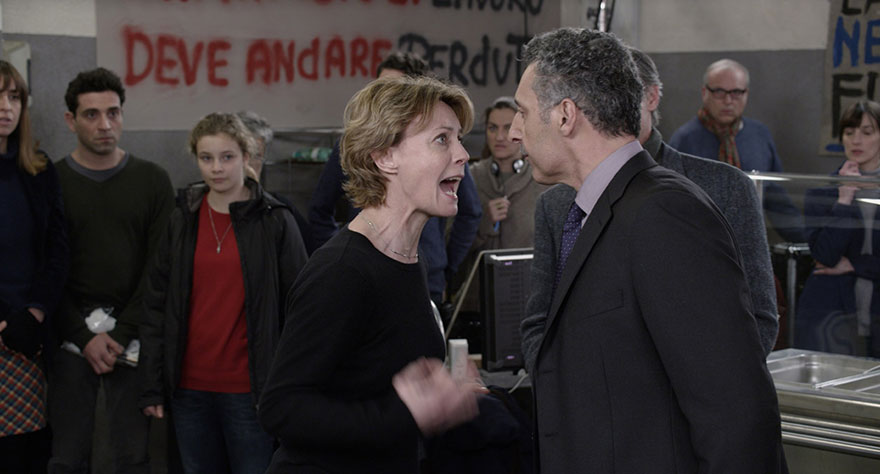TIFF 2015: Mia Madre

For a story that feels directly inspired from the director’s personal life, Mia Madre feels surprisingly bland. Nanni Moretti’s latest film focuses on Margherita (Margherita Buy), a director working on the troubled production of her latest film. Her on-set troubles come in the form of Barry Huggins (John Turturro), an American actor with a bloated ego; off set, Margherita and her brother (Nanni Moretti) have to deal with their mother’s (Giulia Lazzarini) failing health. Both children know that, with their mother, getting better isn’t an option; it’s only a matter of when she’ll pass on, and the impending death soon takes its toll on Margherita’s health and well-being.
Moretti faced a similar issue several years ago; his mother passed away while he was working on his 2011 film We Have a Pope, so it feels a bit strange watching Mia Madre unfold in such a bland and detached manner. Moretti throws in one clue after another about Margherita’s psychological condition, and his weaving in of dreams and fantasy sequences (all shot in the same way, making it hard to discern what’s real and fake at certain moments) does a fine job of establishing his protagonist’s fraught mental state. But none of it really coalesces into anything definitive about Margherita. It all feels fragmented, making certain sequences—like one where Margherita purposely smashes her mom’s car after catching her driving—feel baffling or out of place. Moretti makes it impossible to find anything about Margherita worth latching on to, and as a result, the central drama over her mother’s passing falls flat.
At least Mia Madre benefits from its cast. Moretti and Lazzarini feel somewhat wasted (Margherita’s mother barely registers as a character, which also contributes to why there’s almost no emotion in the film), but Buy and Turturro keep the film from being entirely forgettable. The shoddy script makes Buy’s characterization weak, but she does a terrific job expressing the strain of keeping herself together professionally while her personal life goes to hell (in other words, her behaviour may not be relatable but her emotions are). And Turturro turns out to be the lifeblood of Mia Madre, making Barry a frequently funny and bombastic presence who’s seemingly dedicated to pushing Margherita even closer to the edge. But the talent of these two performances might only be magnified here when compared to the very miniscule drama going on elsewhere in the film. The only thing Moretti achieves with Mia Madre is something that was most likely unintended: he managed to make a film about the death of a parent that inspired nothing but complete indifference.
